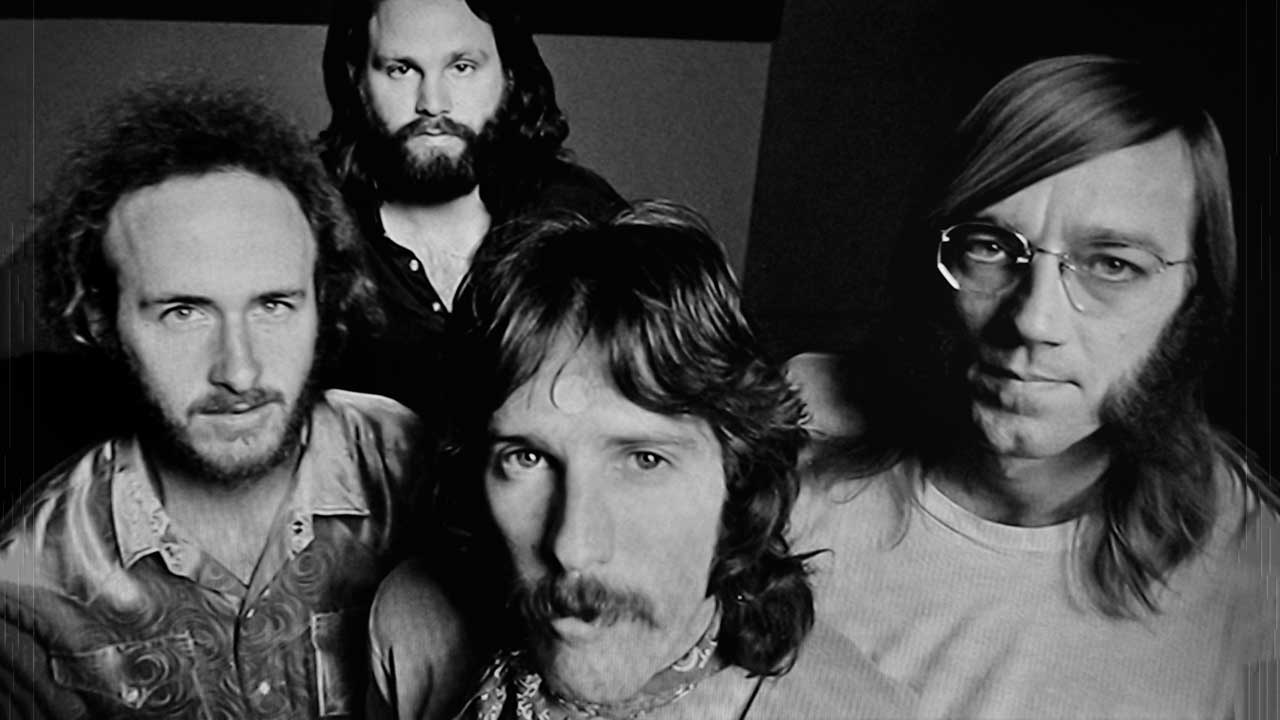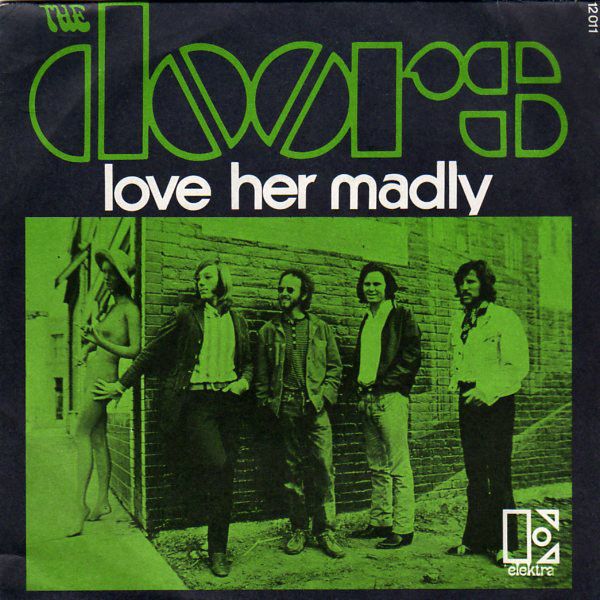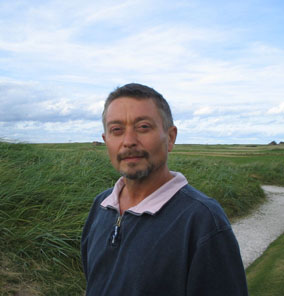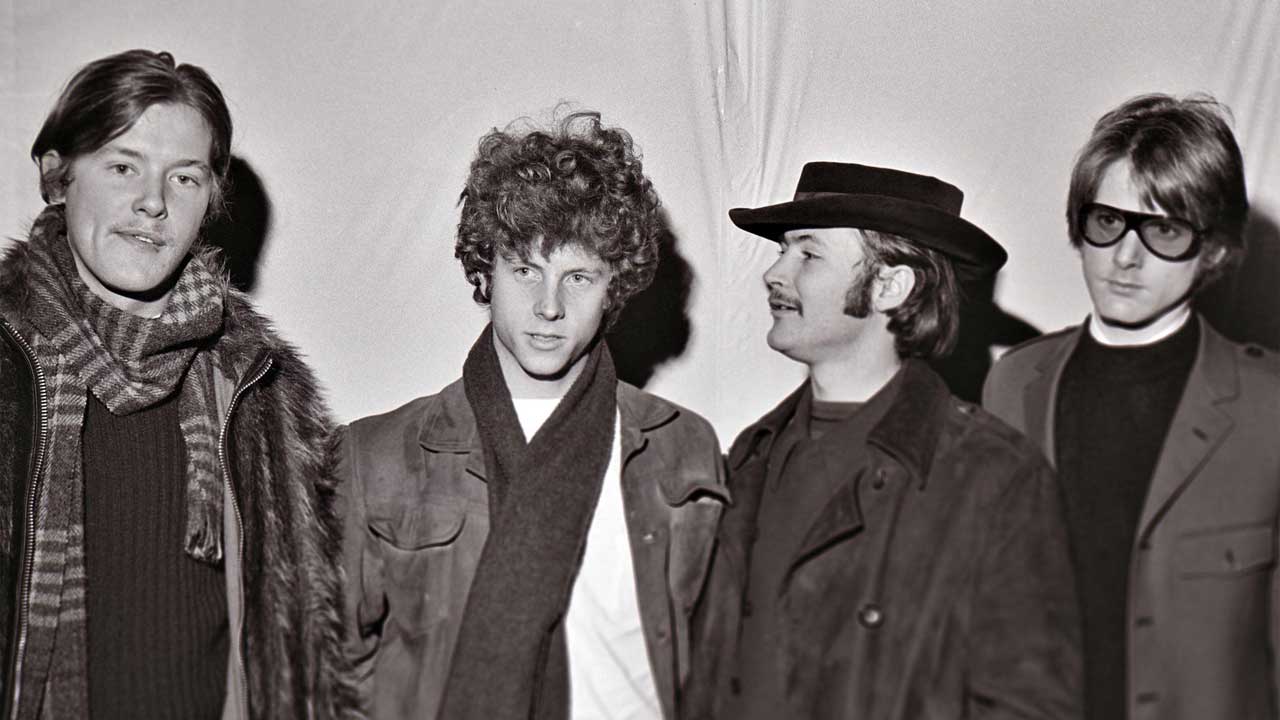"When I first heard it, driving round LA, it sounded great, it leapt out of the speakers": the story of The Doors' Love Her Madly
The Doors' Robby Krieger reveals how he came to write Love Her Madly, how Jim Morrison loved it, and how their producer didn't

Select the newsletters you’d like to receive. Then, add your email to sign up.
You are now subscribed
Your newsletter sign-up was successful
Want to add more newsletters?
“To be honest? I was bored.” Robby Krieger, guitarist with The Doors, is in his house in Benedict Canyon, Los Angeles, recalling the writing of his of his song Love Her Madly, the second track on the band’s final album, L.A. Woman.
It’s September 1970 and The Doors are in a precarious position. The very real possibility of singer Jim Morrison being imprisoned for inciting a riot and public indecency at the Dinner Key Auditorium in Miami the previous March overshadows them. Promoters refuse to book them and gigs are sporadic; lengthy tours impossible.
Having appeared at the Isle Of Wight festival on August 29, they’re back in Los Angeles. While Morrison is constructing an appeal against a six-month sentence and a $50,000 fine handed out on September 20, the rest of the band, Krieger recalls, “are cooling our heels.
“But I knew we’d have to get back in the studio,” he says, “so I went and bought a new guitar – an acoustic Gibson 335 12-string. One day I was strumming the new purchase and I stumbled over a nice riff and some shuffle chords, and Love Her Madly started to take shape.”
Writing lyrics was not difficult for Krieger, who wrote “25 per cent of the words and at least 75 per cent of the music” for The Doors. Light My Fire, their No.1 hit, was his (with a ‘funeral pyre’ interjection from Jim).
He also wrote You’re Lost Little Girl and Love Me Two Times for the Strange Days album, Wintertime Love and Yes, The River Knows on Waiting For The Sun, and all four singles taken from 1969’s The Soft Parade. There was Touch Me (a No.3 in the US) that Morrison disliked, as well as Wishful Sinful, Tell All The People (another Morrison ‘yuck’), Runnin’ Blue…
“Despite Miami we weren’t in decline,” Krieger says of The Doors of late 1970. “The Morrison Hotel album and Absolutely Live sold well. But the trouble with Jim was that even when things were good he’d find a way to fuck it up. That was his job.”
Sign up below to get the latest from Classic Rock, plus exclusive special offers, direct to your inbox!
It’s mid-October, and Robby has Love Her Madly in decent shape. “Usually all my songs are about the four elements: fire, air, water, earth. This one wasn’t typical for me. Lyrically I fixed on the idea of a guy whose girlfriend is his obsession but she keeps on walking out and giving him the runaround. That was me. I wrote it about Lynn, now my wife.”

Lynn Veres Krieger, the subject of Love Her Madly, was a go-go dancer from New Jersey who met The Doors in New York in 67 at the Ondine discotheque – a place frequented by The Velvet Underground and Andy Warhol’s Factory crowd. She caught Morrison’s eye when her falsies slipped out of her bra, and they had a brief fling, before she gravitated to Robby. Lynn and Robby would marry in 1972.
Krieger didn’t put Love Her Madly onto cassette – he didn’t own one. “I came into our workshop on La Cienega and sung them the song. It was a bluesy, almost folk-rock thing that Arthur Lee and Love could have done. Ray Manzarek put on some great classical harpsichord-style keyboards, and John Densmore added a military drum and a shuffle, so it had a slightly Latin feel.
"It was an easy-listening song, but Jim loved that; he liked to croon. When he wanted to he could sing like Frank Sinatra, who he listened to a lot. Jim made it different and better. His favourite part was the line: ‘All your love is gone, so sing a lonely song/Of a deep blue dream, seven horses seem, to be on the mark’.
"Jim always told me: ‘Put in something that makes the listener confused’. It didn’t mean much – seven horses were like a lucky omen. Jim liked horse racing from his Florida days. The bit about ‘seem to be on the mark’ simply fitted the military rhythm.”
One person who didn’t rate Love Her Madly was The Doors’ long-time producer, Paul A. Rothchild.
“It was early on in the L.A. Woman sessions,” says Krieger. “Paul heard Riders On The Storm and Love Her Madly, and dropped his bombshell: ‘I am not going to produce this! It’s cocktail music!’. The story goes that he’d just finished Janis Joplin’s Pearl album, and she died in early October.
"A few days later he sees Jim in bad shape and thinks: ‘This is all going the same way’. He thought we were on the way down, and didn’t want to be dragged along. But Jim was very much alive then, so I don’t know his real reasoning.”
With engineer Bruce Botnick now sharing production with Krieger, Love Her Madly was completed in early December with bass player Jerry Scheff. “Jerry was vital. We brought him in because he’d been on the road with Elvis Presley and he was hot. His loping bass part was something I suggested, because I’d heard his playing with Elvis and I wanted that exact feel.”
When The Doors delivered the finished L.A. Woman album to Elektra Records in early 1971, boss Jac Holzman told them Love Her Madly would be the first single.
“I wasn’t too happy about that because I thought it was way too commercial,” Robby says. “I wanted Riders On The Storm, it had more impact. But Holzman said: ‘No. FM radio is starting to get big and this will sound terrific’. He was right. When I first heard it, driving round LA in February, it sounded great, it leapt out of the speakers. It had perfect high-end frequencies for car radio, and Scheff’s bass made it boom. I told Jerry that years later and he said: ‘Yeah, I know. Where’s the money?’.”
Jim Morrison left The Doors to go to Paris in the same week in March 1971 that Love Her Madly was released. Outside of the studio he only ever sung it twice: once at the Dallas State Fair Music Hall during The Doors’ second set (he was too drunk to make all of the first one), and finally at New Orleans Warehouse on December 12, 1970.
These were the last times The Doors ever appeared live as a group. While Jim had less than four months left to live, Krieger can look back on a triumphant swansong with the errant singer, having written the final hit The Doors had in the band’s lifetime.
This was originally published in Classic Rock issue 161, in August 2011. Robby Krieger's new album Robby Krieger & The Soul Savages is out now.
Max Bell worked for the NME during the golden 70s era before running up and down London’s Fleet Street for The Times and all the other hot-metal dailies. A long stint at the Standard and mags like The Face and GQ kept him honest. Later, Record Collector and Classic Rock called.

